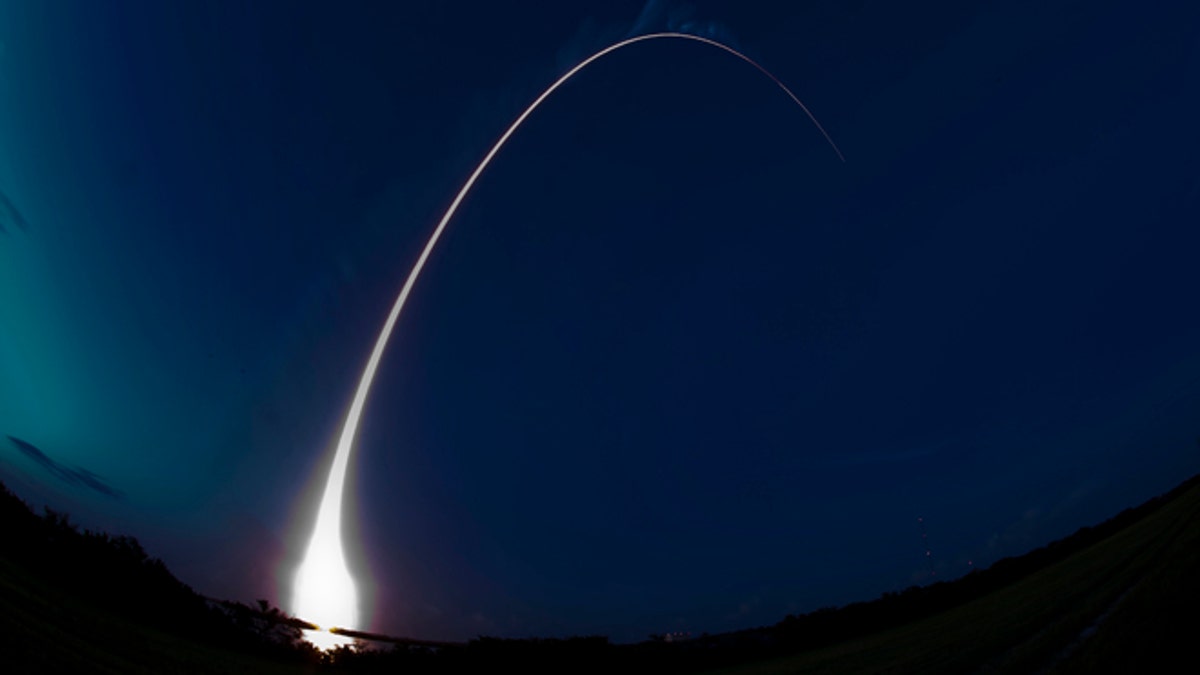
Aug. 7, 2013: A U.S. Air Force Wideband Global SATCOM mission lifts off on a ULA Delta IV rocket from Space Launch Complex 37 at Cape Canaveral, Fla. (Reuters)
The United States faces increased threats to its space program as adversaries develop measures to combat satellite reconnaissance, a new report says.
The report, issued Thursday by the Council on Foreign Relations, details how China, North Korea and Iran are developing “counterspace” abilities, or ways they can interfere with America’s space program at a time of crisis. Inadvertent side effects of these nations’ space programs, such as leaving space debris that could potentially damage American satellites or cause accidents, are also highlighted in the report.
The United States is especially vulnerable given its reliance on satellites for national security, including the targeting of suspected terrorists and imagery analysis of nuclear weapons programs, said the report, which urges the U.S. to take the lead in crafting regulations for space use.
“The United States has strategic interests in preventing and mitigating dangerous space incidents, given its high reliance on satellites for a variety of national security missions and unparalleled global security commitments and responsibilities,” writes Micah Zenko, the report’s author. “The longer the United States delays preventive and mitigating efforts, the less dominant its position will be in shaping ‘rules of the road’ for space.”
The primary threat to the United States is the use of ground-based, anti-satellite missiles that could be used to disable satellites either during a crisis or to gain a hand ahead of an imminent conflict. China has conducted at least six such missile tests since 2005, though it has not yet intentionally interfered with America’s space program, according to the report.
North Korea, which placed its first satellite into space in December 2012, could also threaten U.S. interests in space, and Iran, which has tried to shoot down U.S. Predator drones in the past, could attempt the same if it follows through on its announcement last year to track satellites above its territory, the report said.
Another potential crisis could involve space trash. China’s 2007 test of an anti-satellite system alone increased the amount of space debris in low-earth orbit by 40 percent, and objects, even those as small as flecks of paint, could cause “catastrophic” damage to manned and unmanned spacecraft, which in turn could precipitate a confrontation.
The report believes the United States, which accounts for 75 percent of global space funding, should upgrade its alert systems in case of an imminent threat to its space interests, and urges the nation to push for treaties such as those involving nuclear weapons a few decades ago.
“On the current path, the likelihood of potentially dangerous space incidents will only increase, whereas a renewed focus on preventing and mitigating such events would markedly reduce this threat,” Zenko writes.
From CFR.org. Reprinted with permission.
FoxNews.com’s Karl de Vries contributed to this report.
